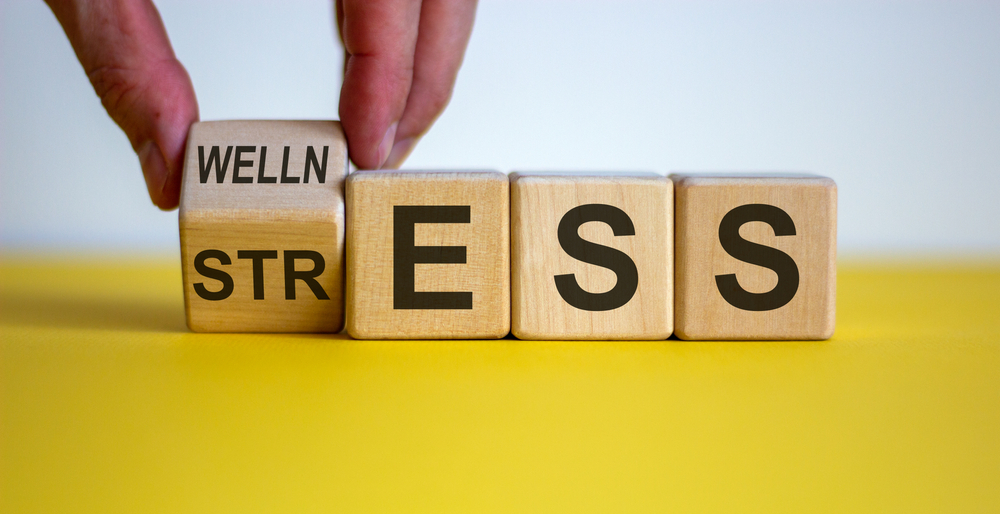Diffuse Your Stress

In today's fast-paced world, managing stress has become crucial for maintaining both mental and physical health. High stress levels can lead to several health issues, ranging from anxiety to cardiovascular diseases. Here are some proven techniques to help manage stress effectively and cultivate a more balanced life.
1. Mindfulness and Meditation
Mindfulness and meditation have recently gained popularity as powerful tools for reducing stress. It involves focusing your mind on the present moment, without judgment or distractions, which can help you become more aware of your thoughts and feelings and handle them without becoming overwhelmed. Even just a few minutes a day can make a significant difference.
2. Physical Activity
Exercise is an effective stress reliever that works in the short term by elevating endorphins and improving mood. Not only that, it also improves overall physical health and resilience to stress in the long term. Activities like walking, jogging, yoga, or dancing can significantly lower the body’s stress hormones, such as cortisol, and help release endorphins, the body’s natural painkillers. Choosing an activity that you particularly enjoy is key in making it a consistent habit.
3. Proper Sleep
Adequate sleep fuels your mind, as well as your body. Feeling tired can increase stress by causing you to think irrationally. At the same time, chronic stress can make it hard to get a good night's sleep. By improving your daytime habits, especially your exercise routine, you can break this cycle and enhance both your sleep quality and quantity.
4. Balanced Diet
Eating a healthy diet can help you combat stress in the long run. Foods like fatty fish, nuts, and seeds, which are rich in omega-3s and antioxidants, can improve brain function and reduce the symptoms of stress. Consuming sugar and caffeine in moderation can also help stabilize your mood.
5. Social Support
Connecting with others is vital. Engaging in conversations and spending time with friends and family can release oxytocin, a natural stress reliever. This effect is called “tend and befriend,” and is the opposite of the fight-or-flight response.
6. Time Management
Often, stress arises from feeling like you don’t have enough time to get everything done. Effective time management helps you break tasks into manageable steps and prioritize them, which reduces the feeling of being overwhelmed. Being conscious of the free time you have is also important to prevent you from over-committing to responsibilities.
7. Relaxation Techniques
Techniques such as deep-breathing exercises and massage can activate the body’s relaxation response, a state of restfulness that is the opposite of the stress response. These practices not only reduce stress but also increase energy and focus.
8. Cognitive Behavioral Therapy (CBT)
CBT is a talking therapy that can help you resolve your problems by altering the way you think and behave. It is a useful tool in stress management that helps to change negative thought patterns that contribute to your stress. This type of therapy can provide a powerful framework for dealing with life’s challenges more constructively.
There are several resources that can assist you in understanding or utilizing CBT:
- Mental Health Centers: where CBT is usually offered as a form of treatment, they can provide you with more information to help you decide if CBT is for you.
- Online Therapy Platforms: have no become more popular and there are multiple options available. You can request an introductory call/session to answer you questions you may have.
- Self-Help Resources: a number of books, online trainings, workshops and webinars now exist that discuss CBT and other therapeutic practices for mental wellbeing. However, it’s important to recognize that working alongside a trained professional is preferrable and more effective.
There is no one-size-fits-all solution for stress-management. It’s important to take a moment to understand the stressors in your life and to find out what works best for you and stick with it. Regularly practicing these techniques can help you reduce your stress levels and increase your quality of life. Start small by incorporating one or two strategies and gradually build upon them as you feel more comfortable. Remember, it’s a sign of strength to admit when you’re feeling overwhelmed and need some help and support.
For more support on managing stress and improving your mental wellbeing, use MindSet service through MyGIG app.







